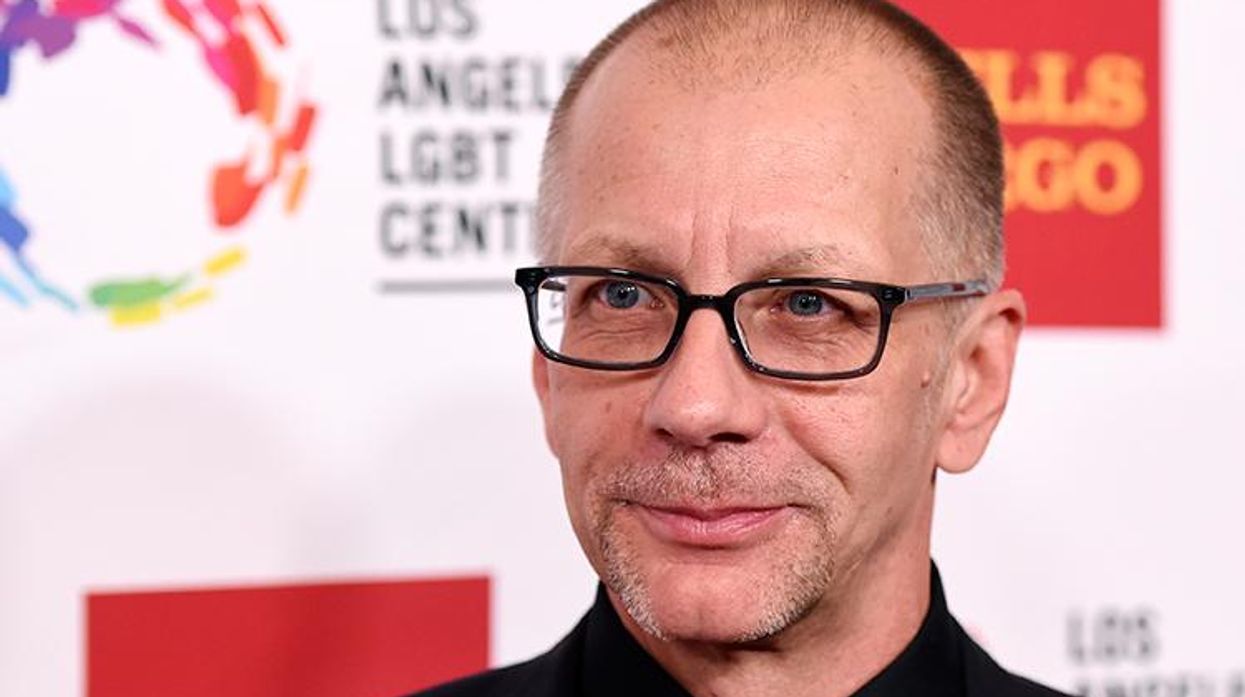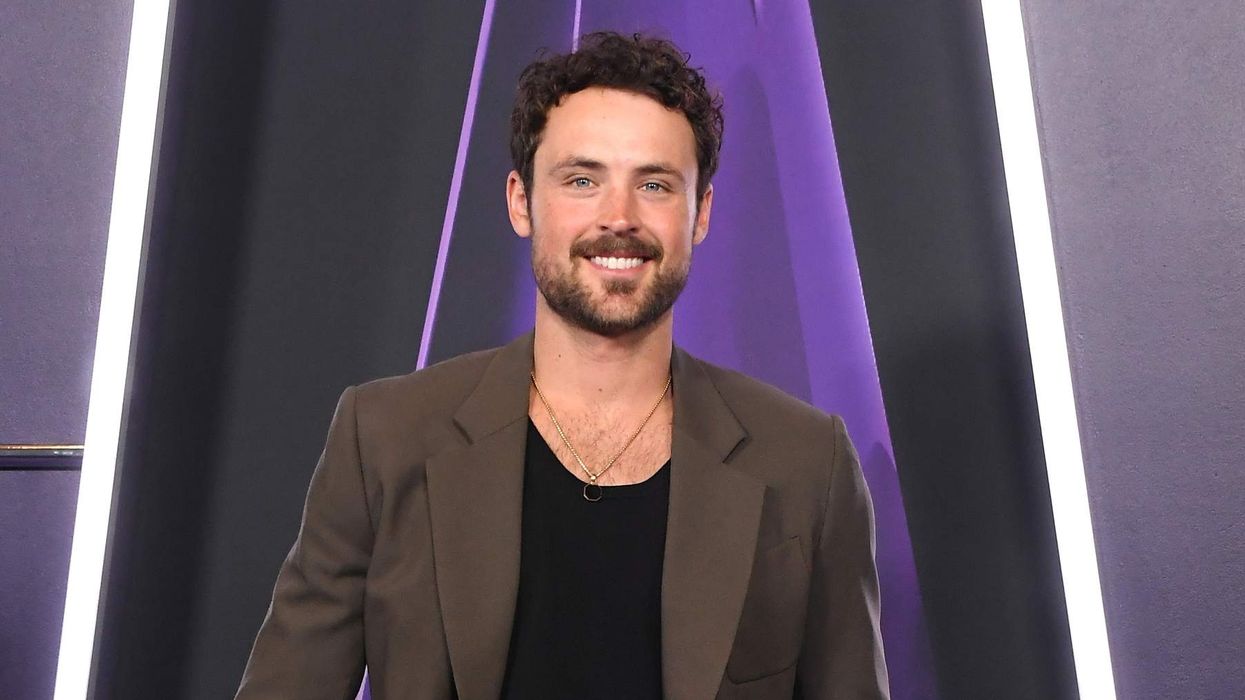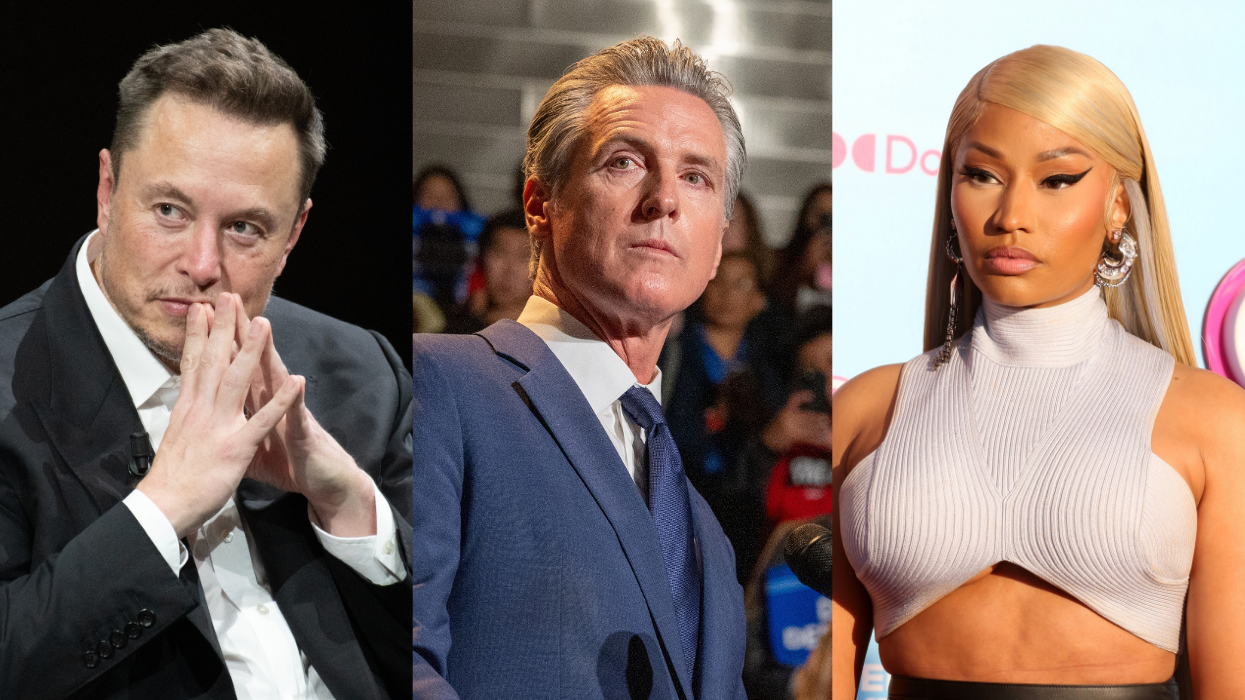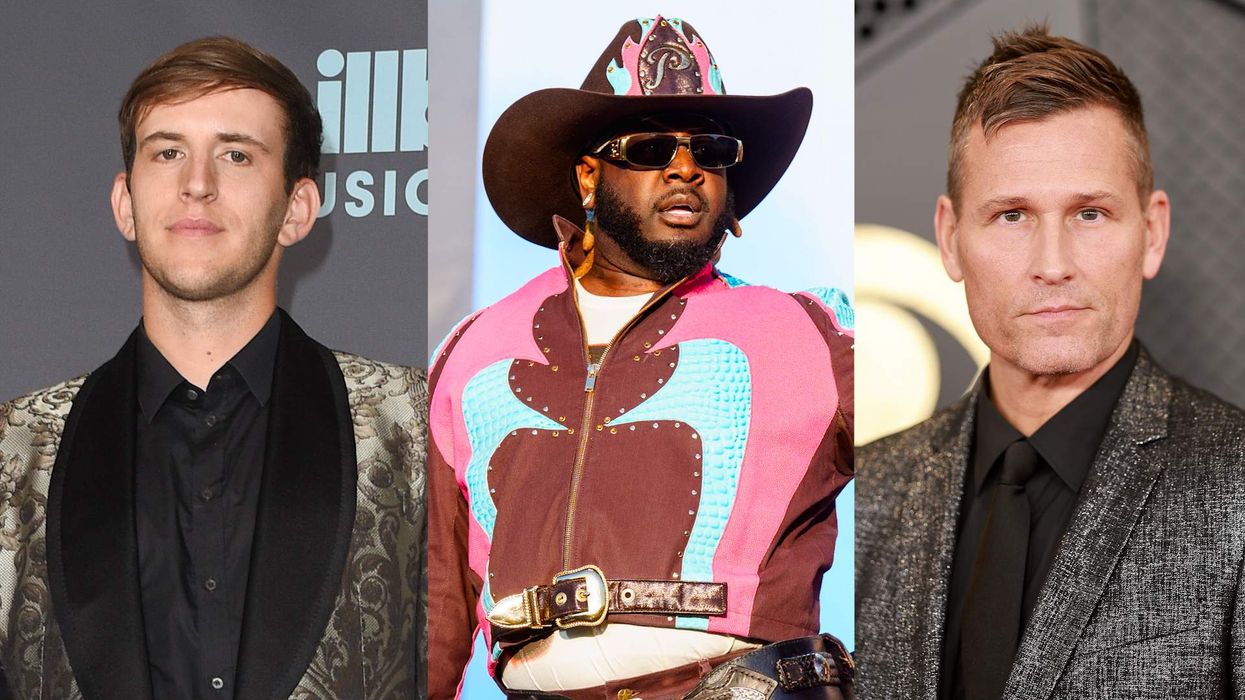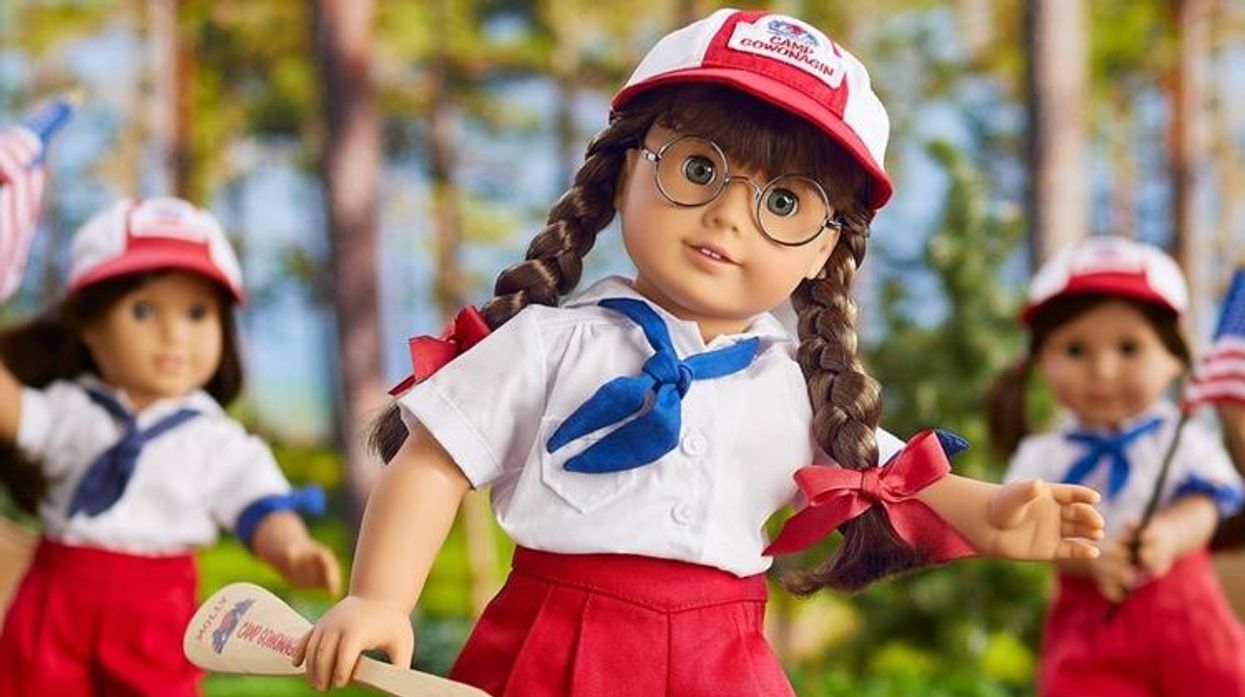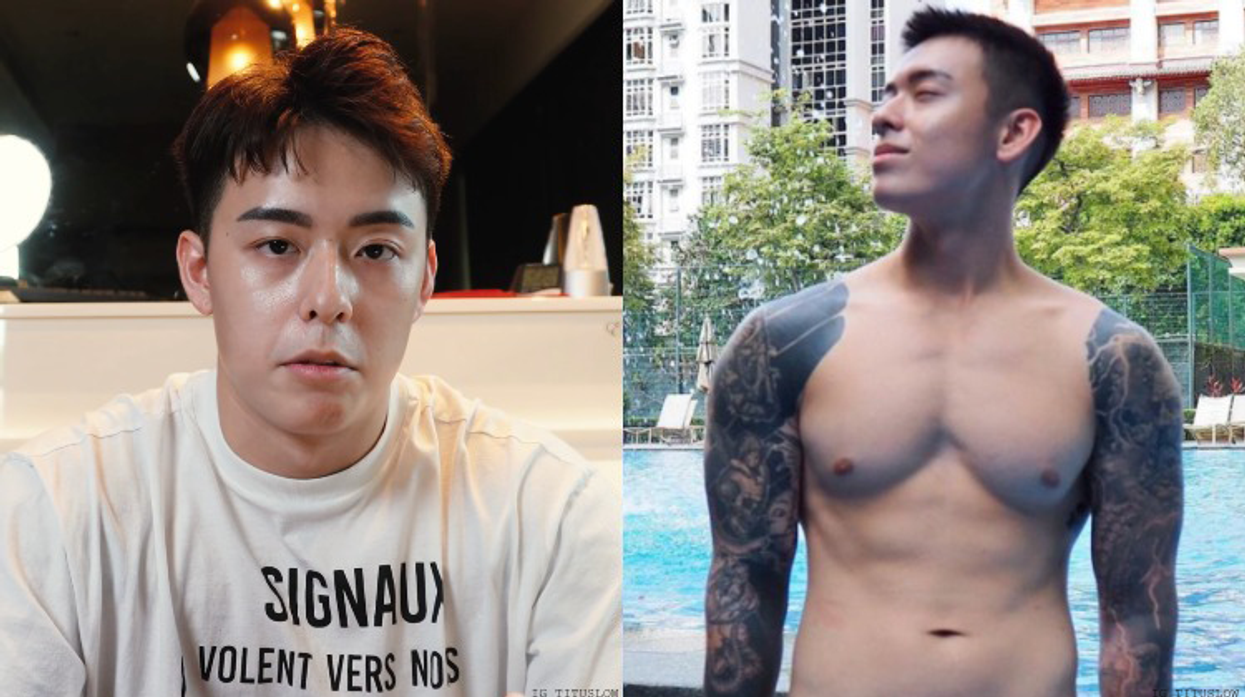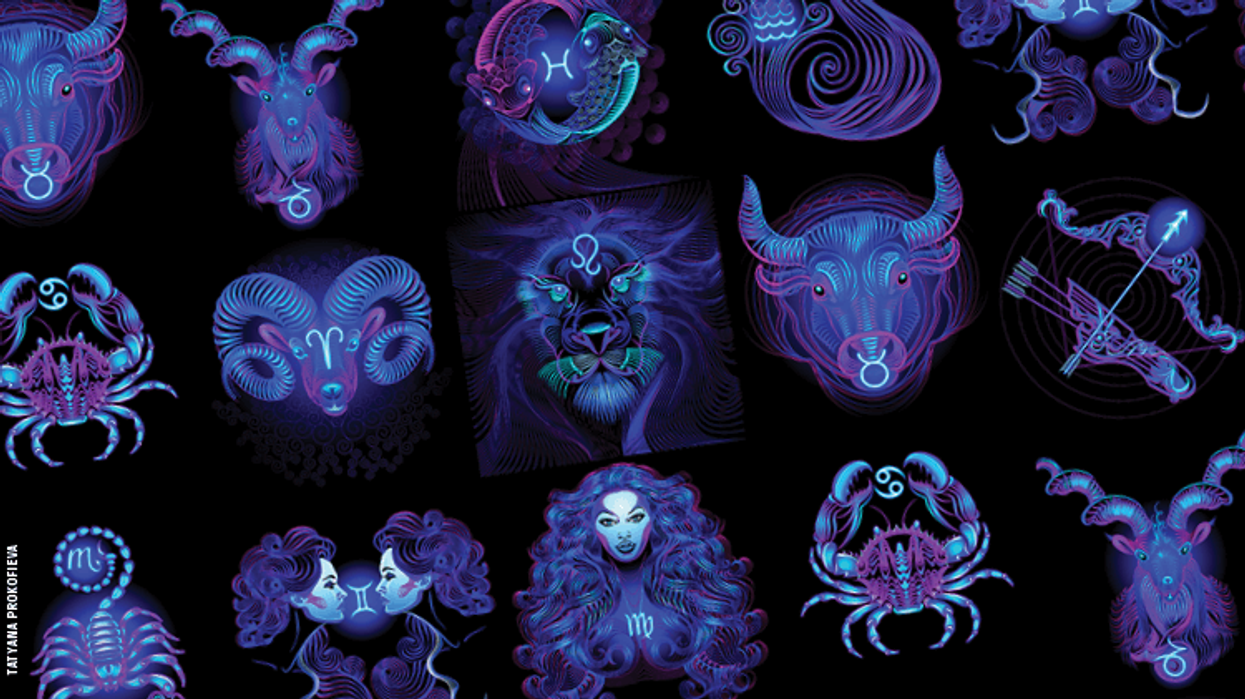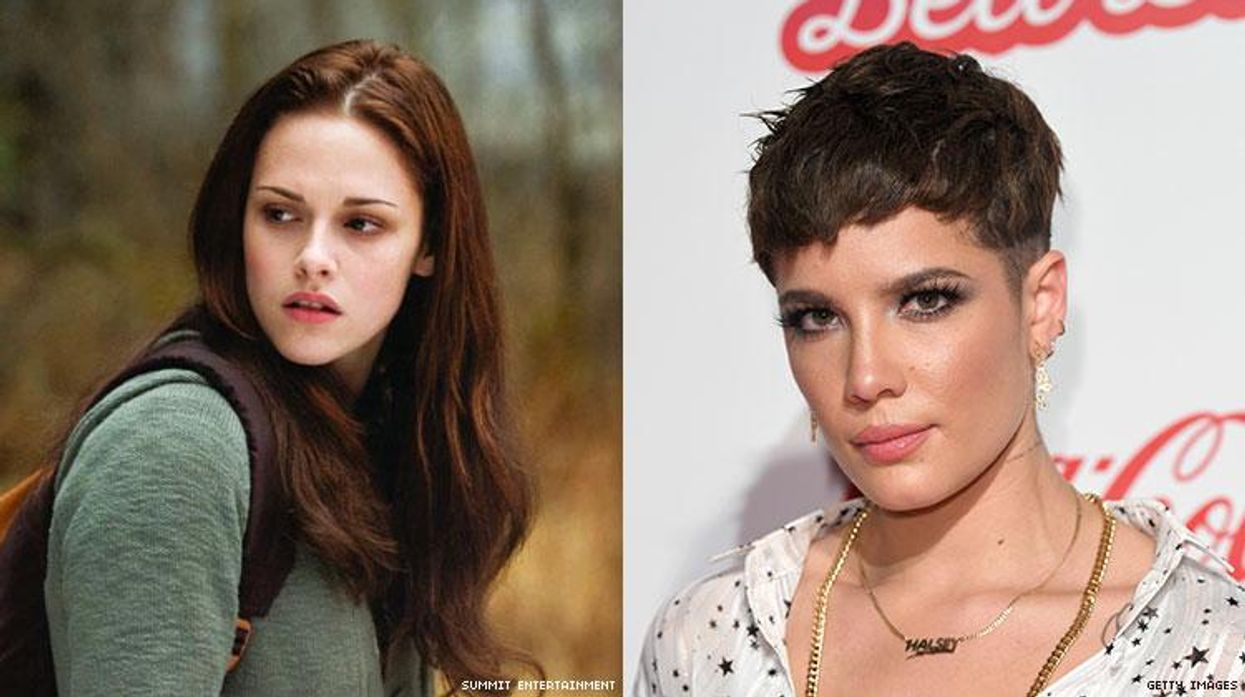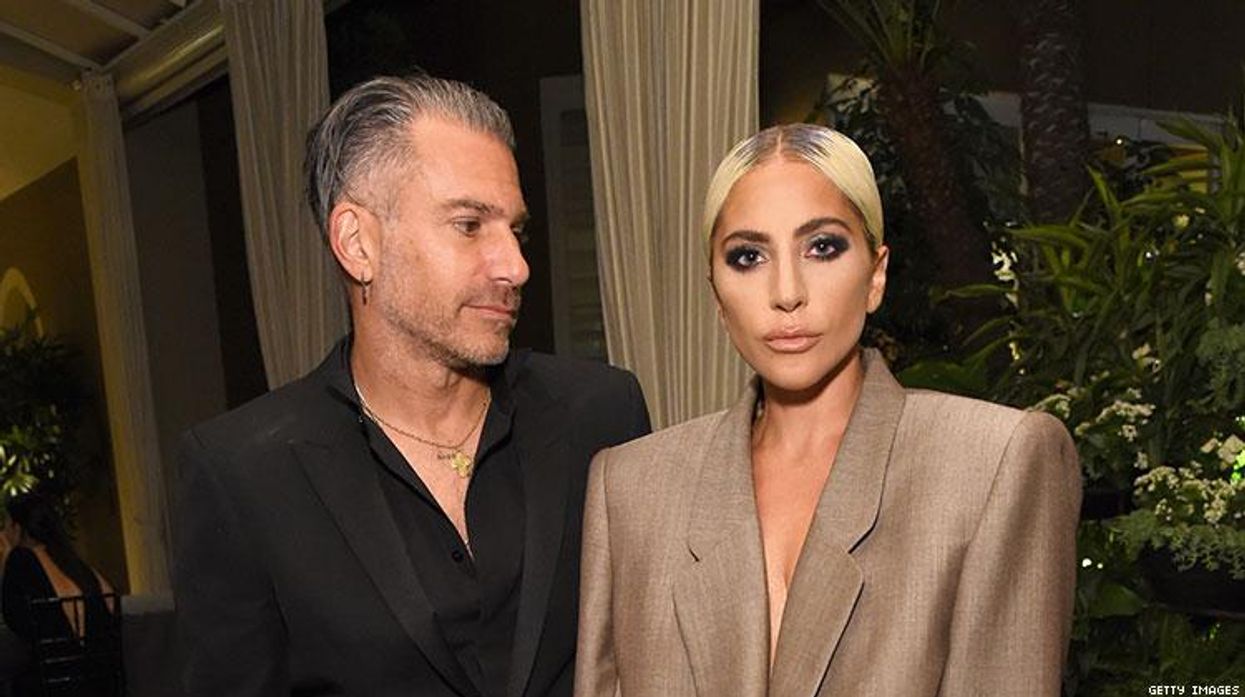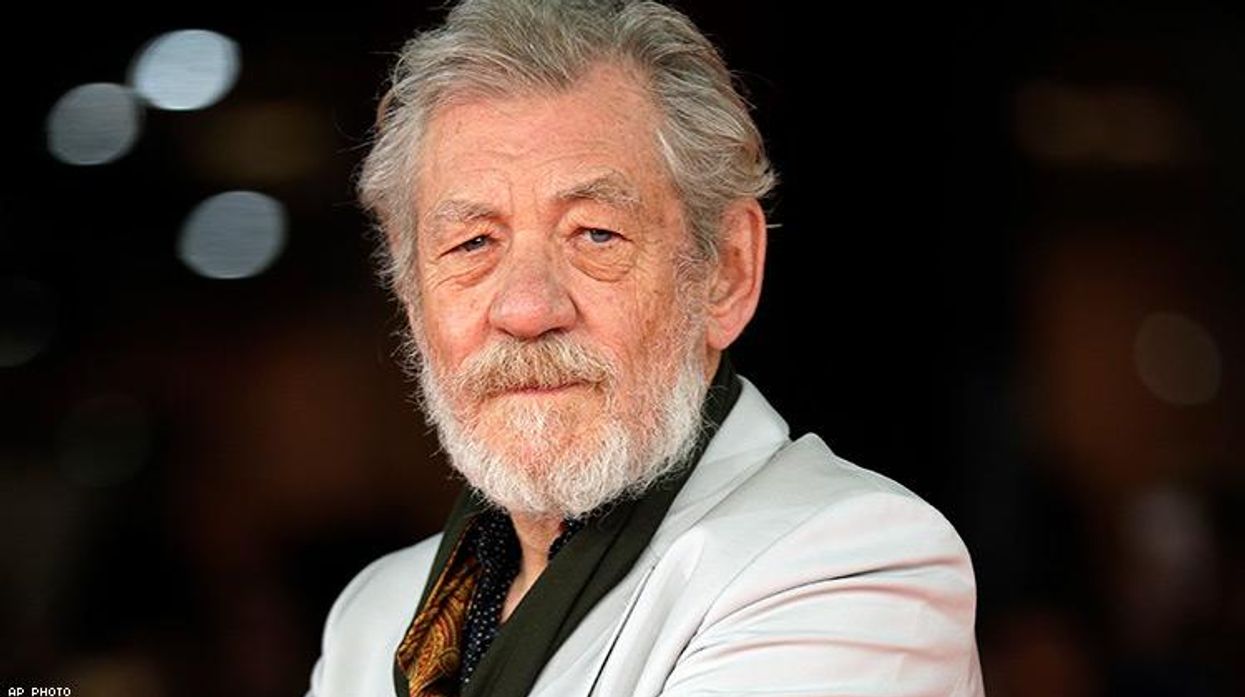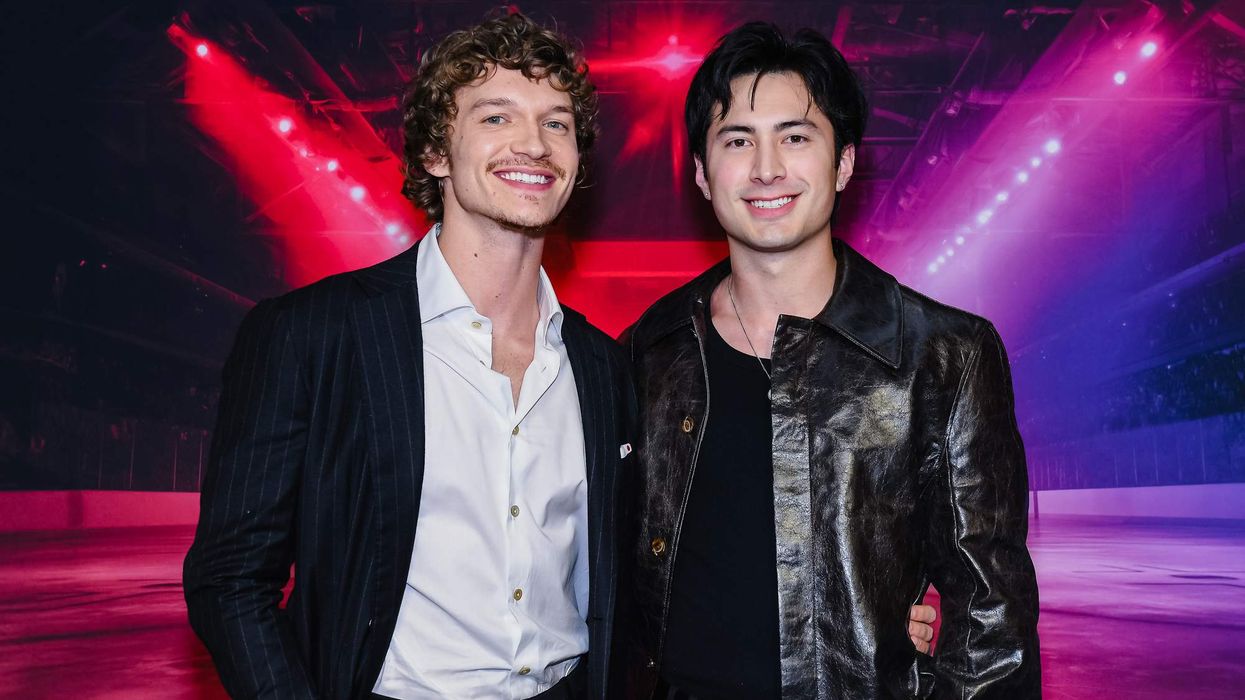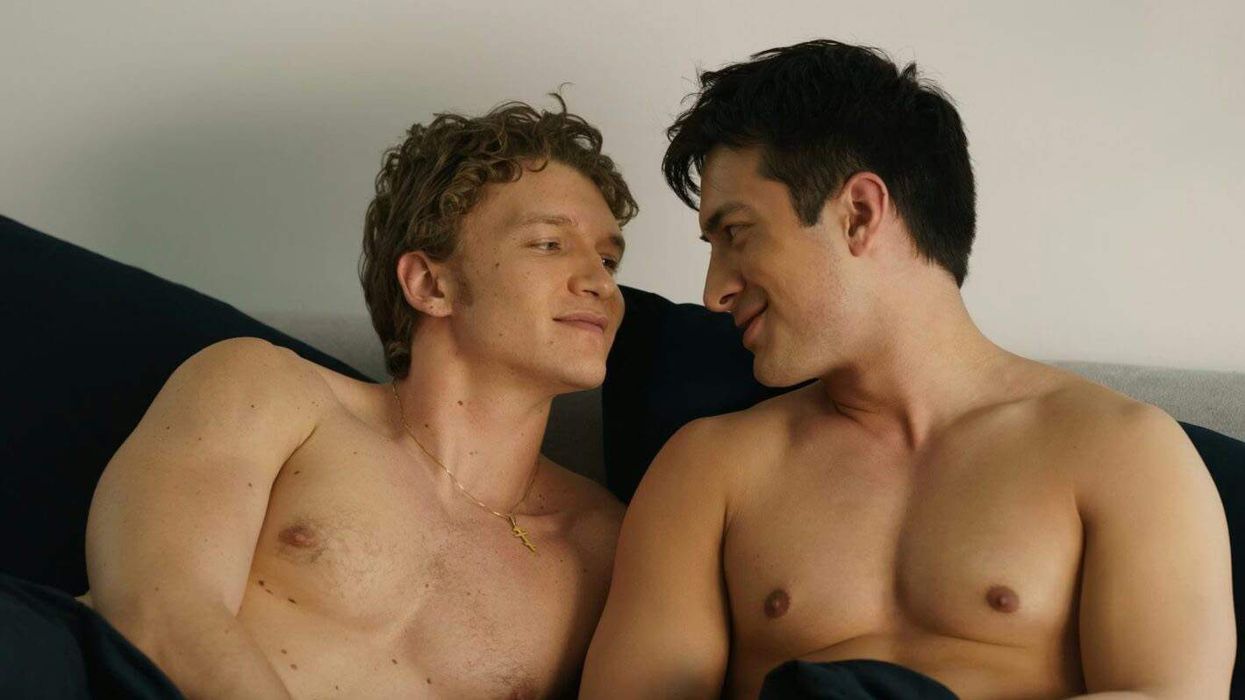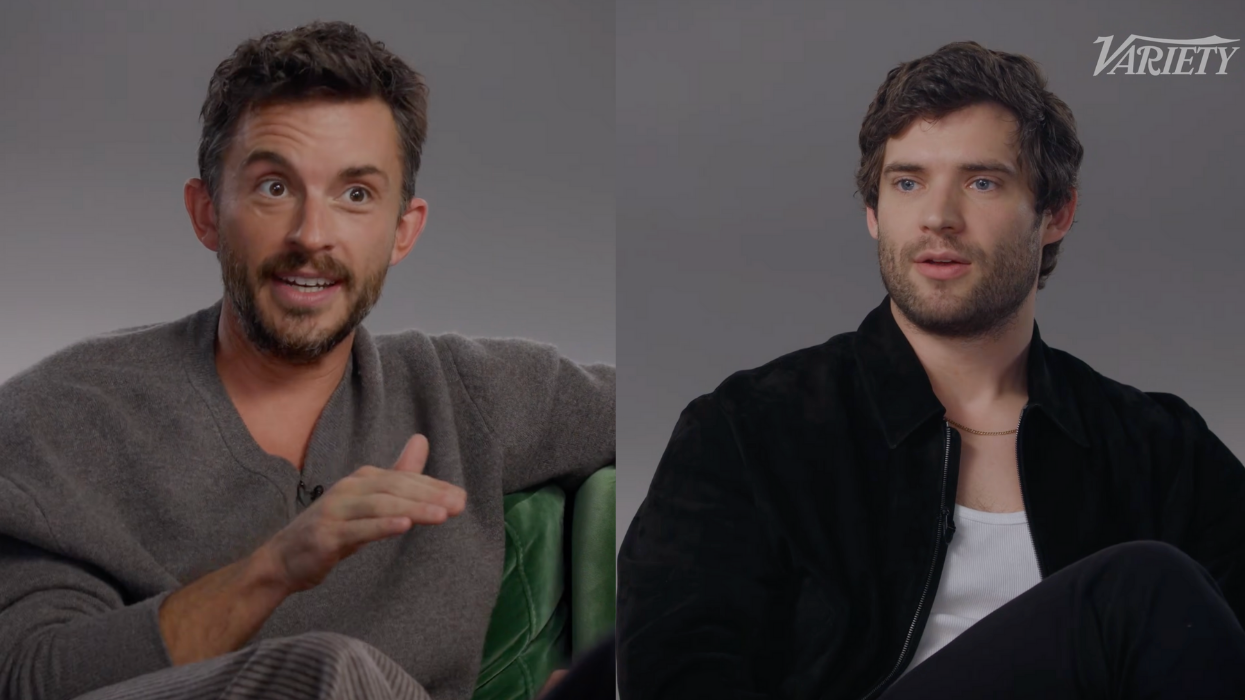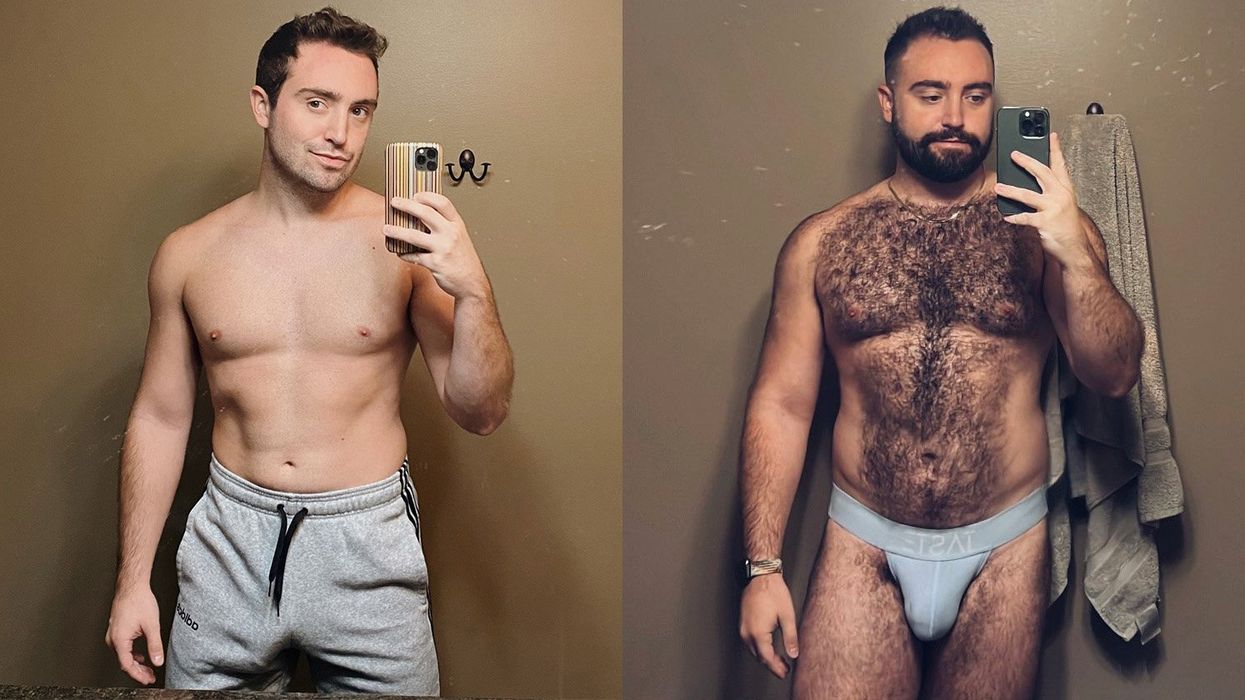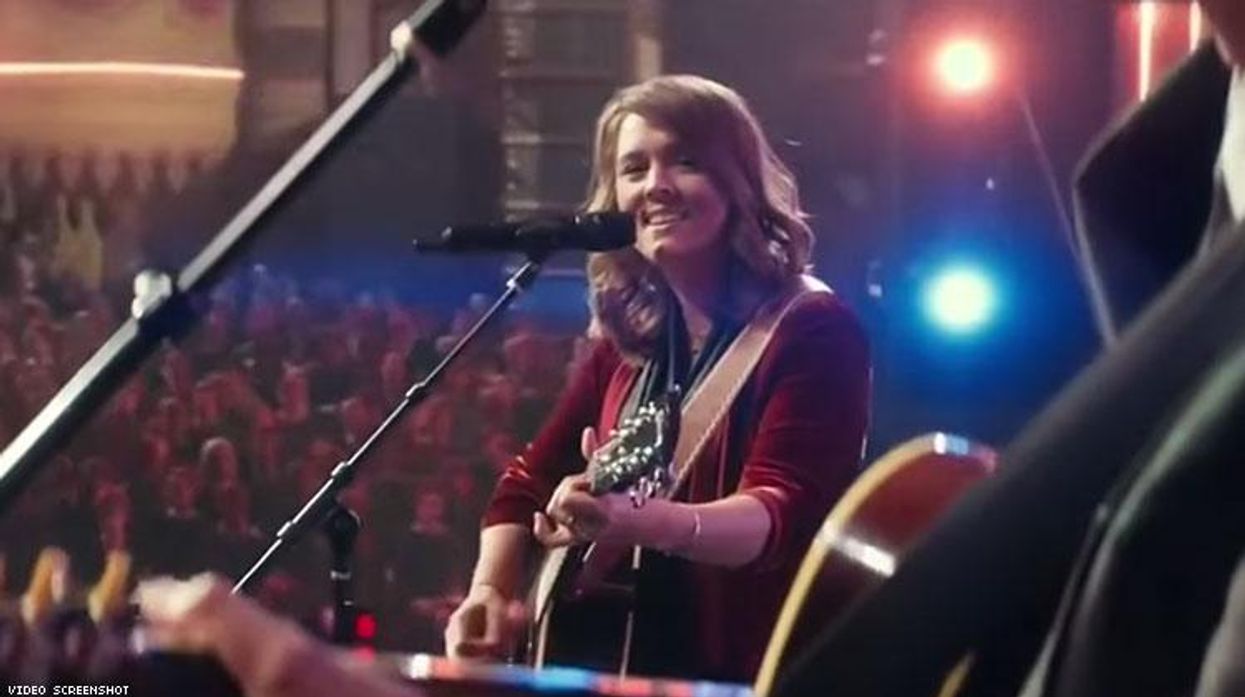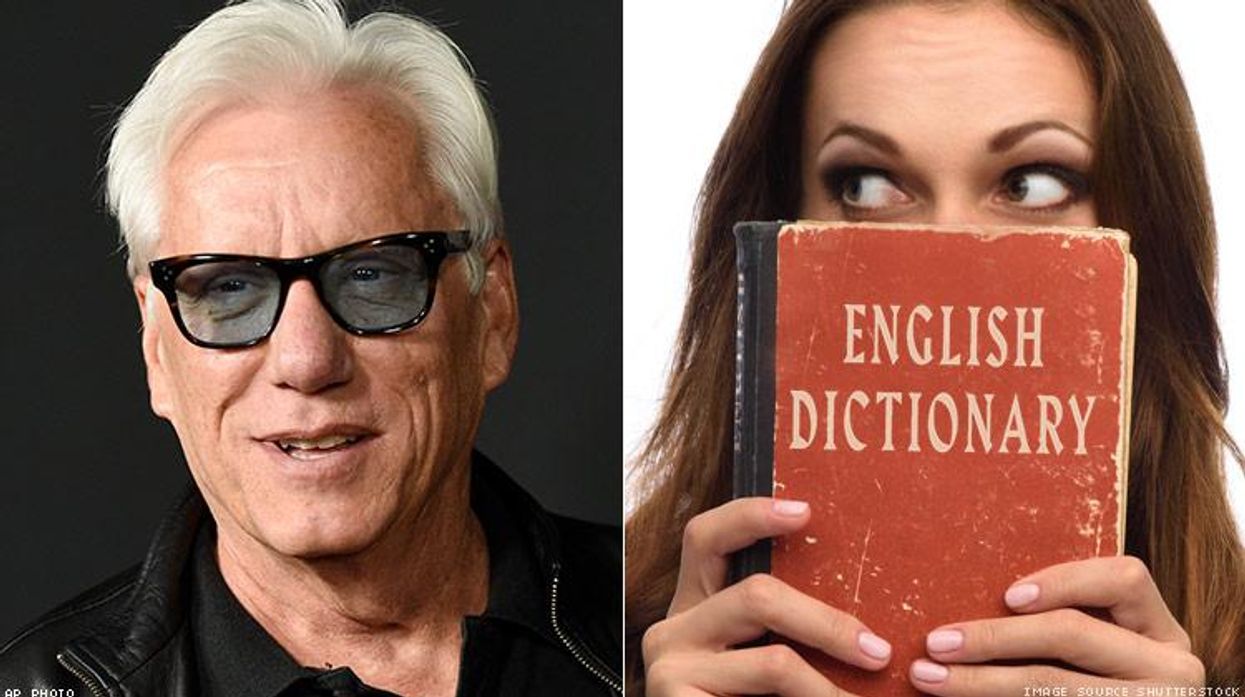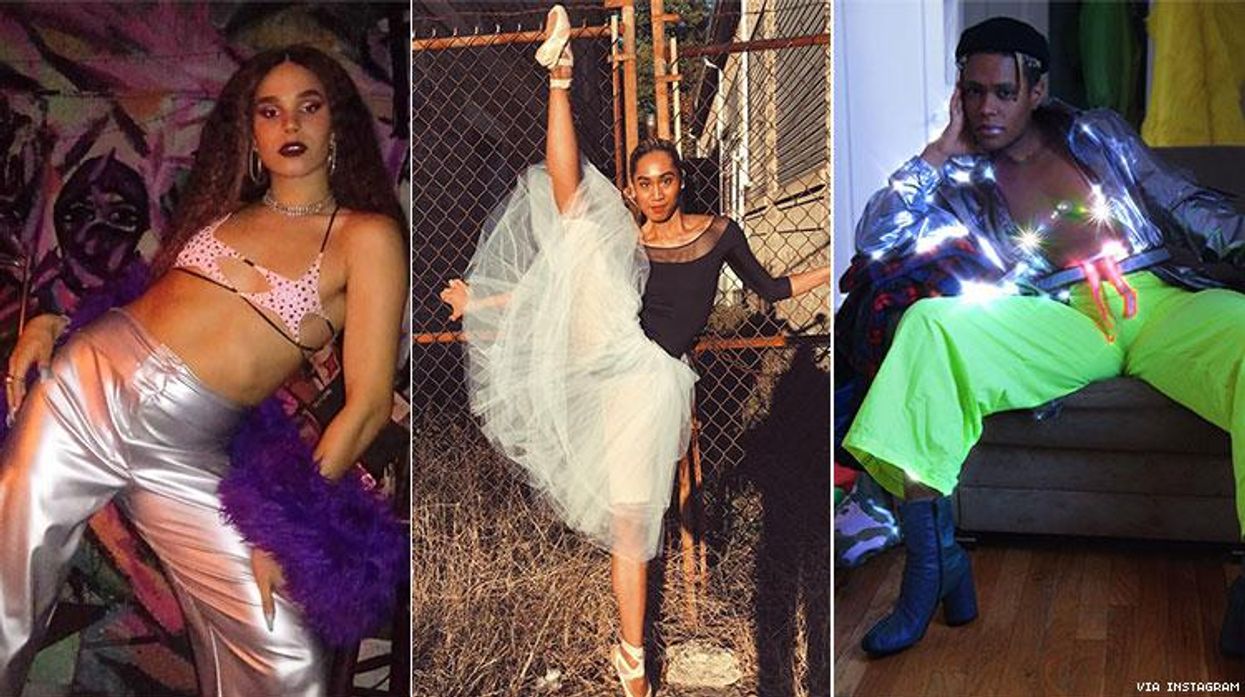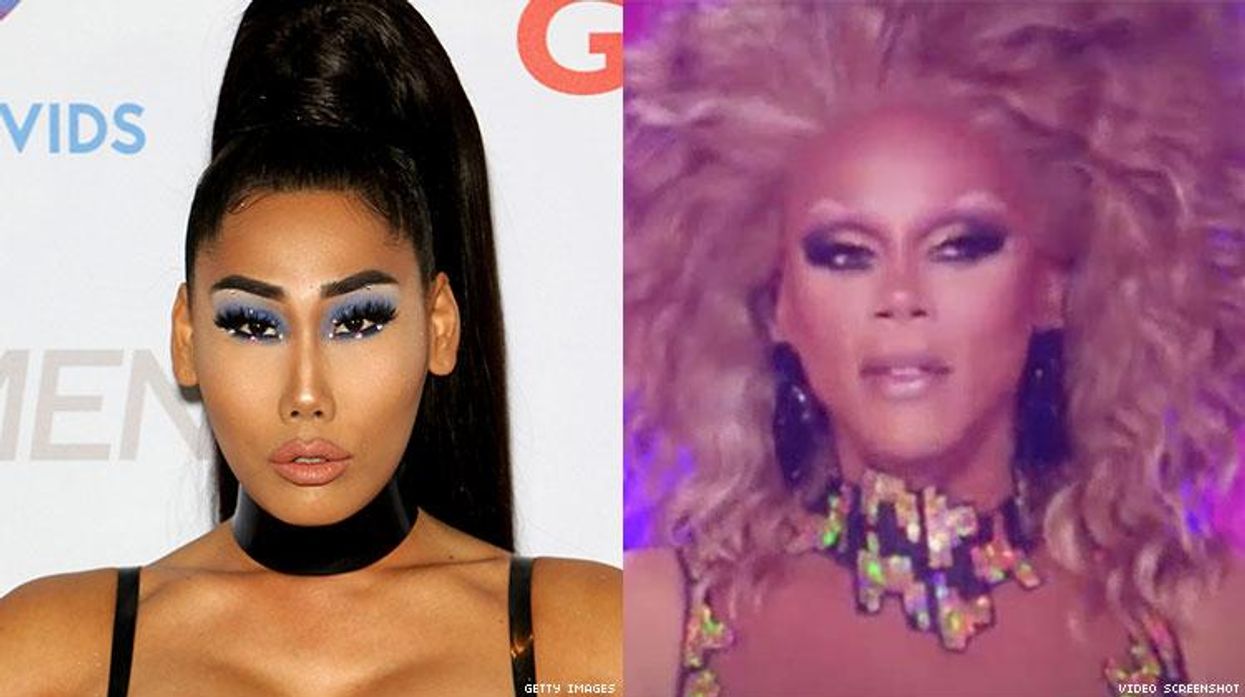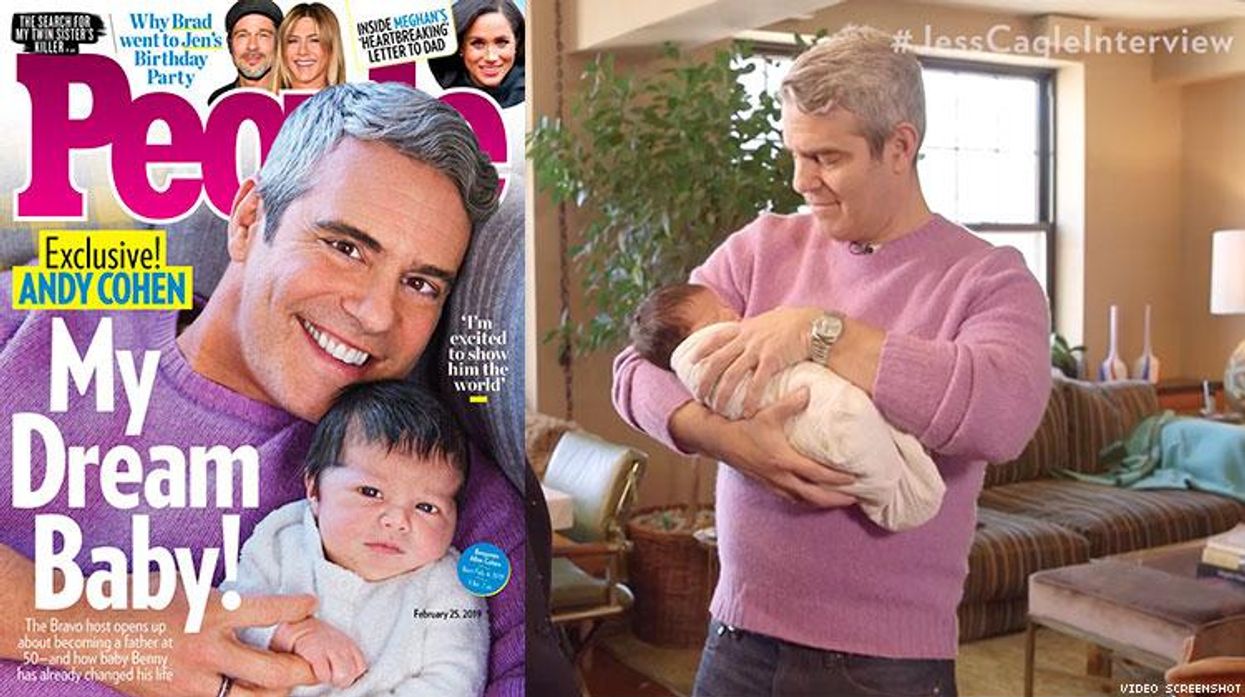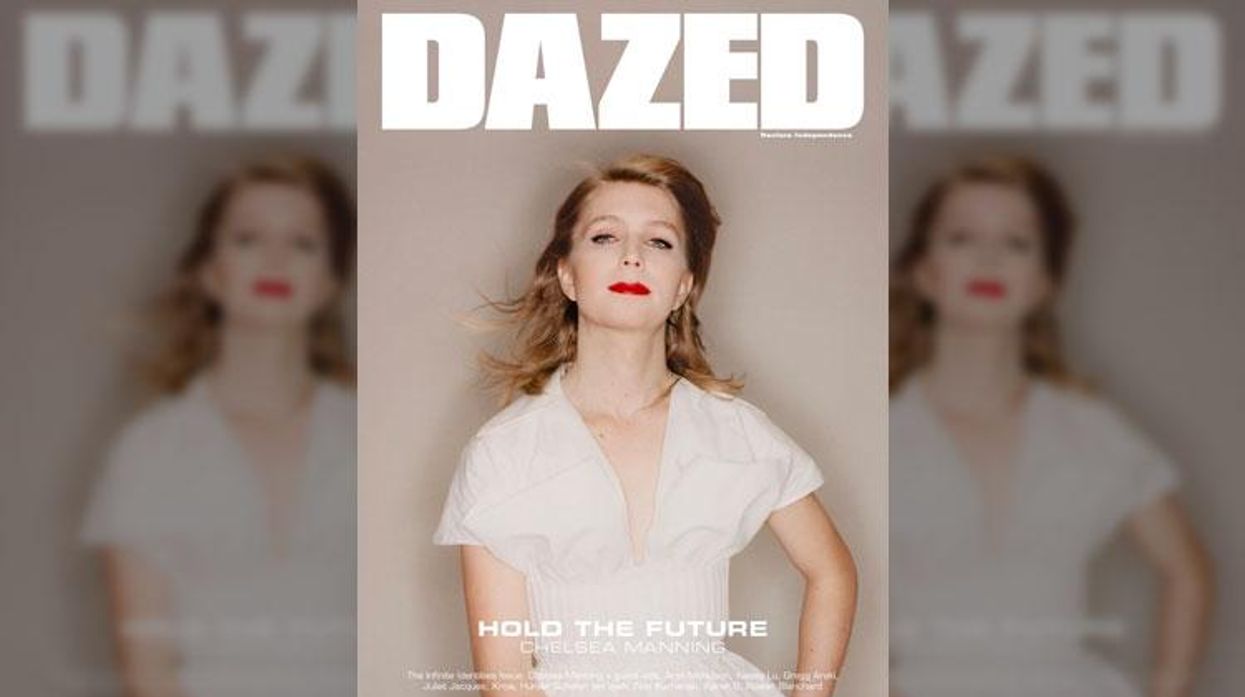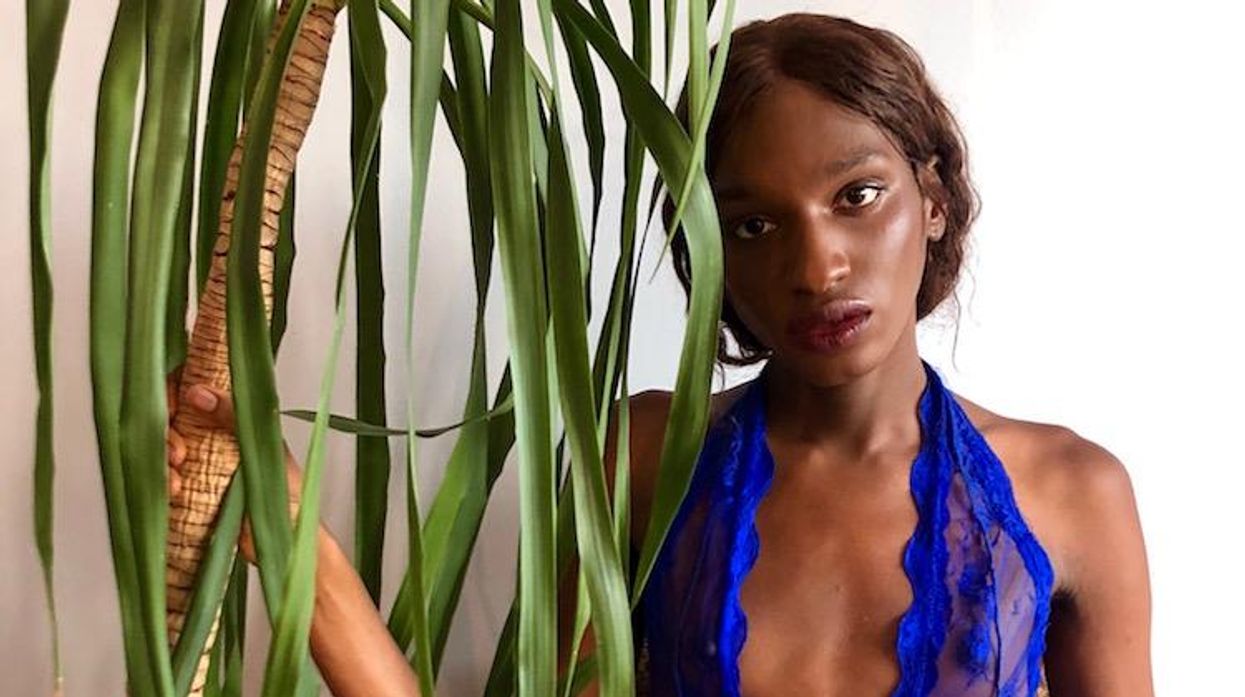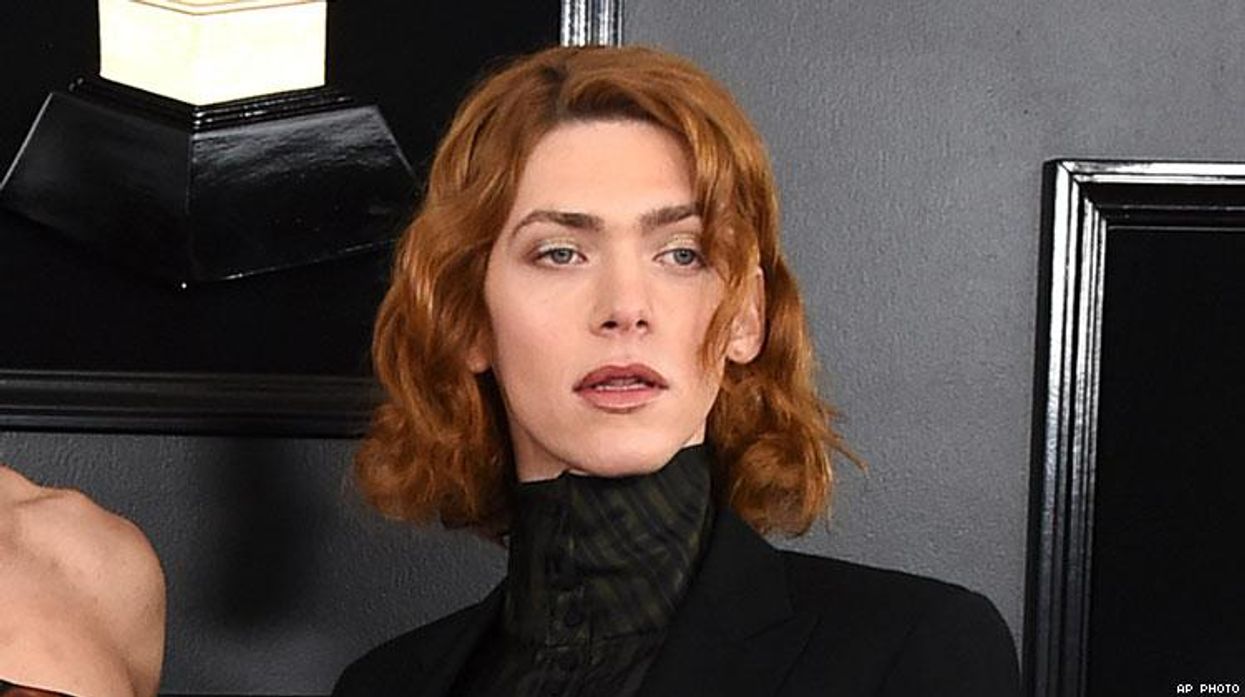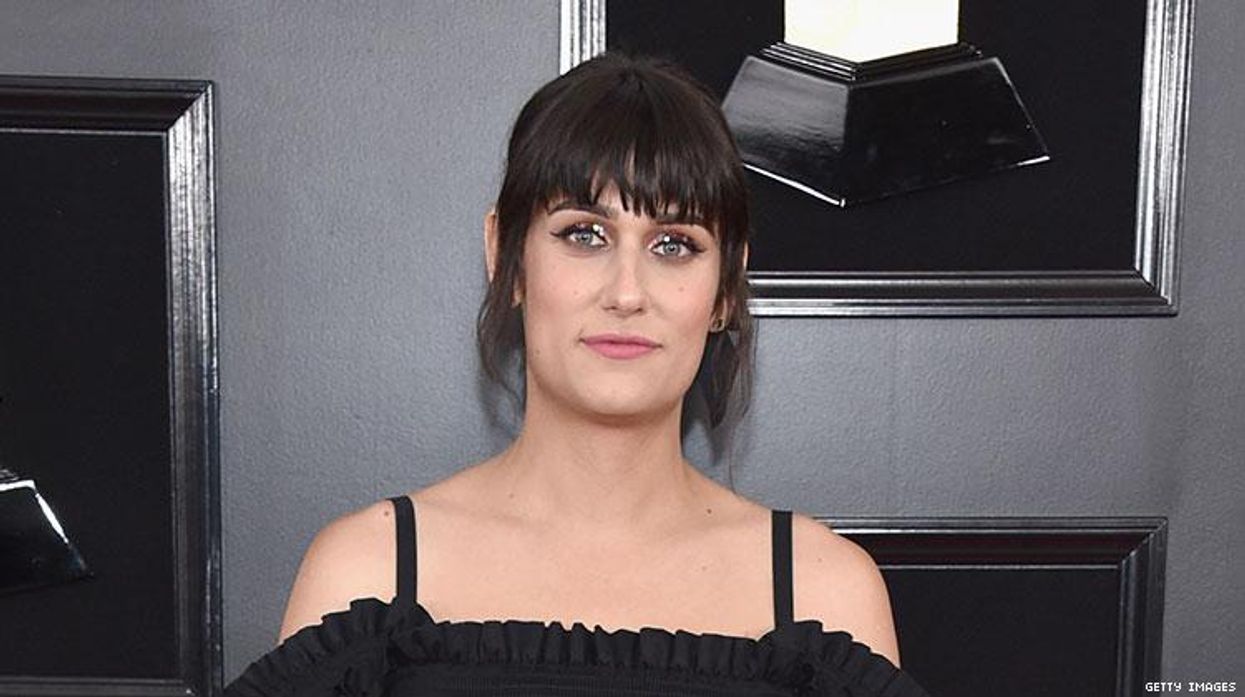The gay screenwriter of Freeheld, Ron Nyswaner, is speaking out against the mainstreaming of LGBT characters.
In a passionate speech at the Los Angeles LGBT Center's Vanguard Awards on Saturday, where he was being honored for writing pioneering films like Philadelphia and Soldier's Girl, Nyswaner expressed his frustration with Hollywood's trend to normalize queer lives in film and television.
"We must take care to protect our history and our culture. We must be careful as we become 'mainstream' that we don't forget that we are the descendants of outlaws and rebels," he cautioned the audience Saturday night at the Hyatt Regency Century Plaza in Los Angeles. "We must resist the tendency to be 'de-gayed.'"
Nyswaner was presented his award by Olive Kitteridge actress Frances McDormand at the fundraising gala, which supported the Los Angeles LGBT Center's health and housing services for LGBT youth and elders. Other honorees of the evening included Jane Fonda, who was introduced by her Grace and Frankie costar Lily Tomlin, and out singer Miley Cyrus.
RELATED | The Real-Life Steven Goldstein Has a Problem With Freeheld
Although he did not reference the film by name, Nyswaner, whose most recent writing credit is Freeheld, stated that a new project of his was changed by producers who were fearful that its lesbian characters were too queer. The result, he says, was a disappointing, tamer version of what he had written.
"One of my recent gay-themed projects had a lot of potential. But the producers became fearful," he told the audience. "And the gay characters were idealized, their edges were smoothed out, the conflict between them was softened."
The film Freeheld is based on the real-life story of Laurel Hester (Julianne Moore), a New Jersey police officer who, after learning she is dying of cancer, fights to bestow her pension benefits to her partner, Stacie Andree (Ellen Page).
The film was panned by many critics. The review aggregator Rotten Tomatoes gave the film a rating of only 46 percent "fresh," noting, "Freeheld certainly means well, but its cardboard characters and by-the-numbers drama undermine its noble intentions."
RELATED | Remembering the Streets of Philadelphia
Full transcript of Nyswaner's speech is below:
"The women I'm sharing this evening with have significantly influenced my life.
Frances McDormand. 'Francy.' We've known each other since we were teenagers, in church camp. Frances was then, as she is now, a startling, exhilarating, and sometimes disturbing, teller of the truth. A kind of teenage Olive Kitteridge.
Frances, the signature quality of your art is your willingness to uncover the dark and uncomfortable truth of our human natures.
Jane Fonda. For a high school assignment, I was asked to make a presentation on someone I admired. Now, this was southwestern Pennsylvania, coal mining country, where people loved football, deer hunting, and chewing tobacco. And it was the height of the Vietnam war.
For my report, I chose Jane. I did a collage. I featured photos from Life Magazine of Jane at various protests. Photos from Klute in that fantastic haircut and the turtleneck. I regaled my class with all the reasons I admired Jane. Her fearlessness, her intelligence, her brilliance. She taught me that an artist's responsibility lies beyond the next step in a career. That with this privilege we have -- and it is a privilege to make a living as an artist -- we must honor the privilege by being engaged with the world. And as I went on and on, talking about Jane, it soon became apparent to my classmates, that I not only admired her but I wanted to be her.
Lily Tomlin. In 1977, she came to the University of Pittsburgh to raise money for the plaintiff in an important, sex-discrimination lawsuit. I was the arts editor on the college paper. After Lily's show I interviewed her. She told me how the university was handling the case, their dirty tricks and underhanded legal maneuvers. She warned me that I could get into trouble if I wrote about it. Lily, you said, don't take the risk for my sake. Take the risk only if you believe in the cause and you're willing to suffer the consequences.
I did write about it and I did get into trouble. Lily, and this is true. ... About a month after you and I had that conversation, I came out of the closet. Because you taught me that the consequences we might suffer, when we tell the truth are worth the risk.
Calpernia Addams is here tonight. She is the subject of my movie, 'Soldier's Girl.' Calpernia, you taught me the value of being true to yourself even when the world, even when the facts of your physical existence, contradict that truth. You are the bravest person I know.
Years ago, when I was at the beginning of my recovery from drug addiction and alcoholism, a wise man told me that we are motivated by two things in life: Love or fear.
Growing up gay in the 1960's and 1970's, I was quite familiar with fear. There were no gay characters in the movies, on TV, or in books. In my entire childhood and teenage years, I heard the word "homosexual" spoken aloud only once. My cousin used it -- at Sunday dinner, no less -- referring to a man in our church. The church organist of course. When she said it my entire family gasped with shock and horror, simply at the use of the word, "homosexual." What I suspected myself to be was not only invisible. It was unspeakable.
That unspoken truth followed me like a cloud. It tortured me and my gentle, simple, loving parents. Then I found the gay civil rights movement in the 70's. I can't describe the relief I felt. But that deep-rooted shame never completely goes away. The challenge isn't to get rid of it. It's to do something with it.
About 20 years ago, I was in my house, in Woodstock, NY. I was taking a break, from writing a script. An I was listening to opera aria by Maria Callas. The music moved me and I cried. I heard a knock at my door. The man who mowed my lawn was standing there, watching me listen to opera, with tears streaming down my face -- a true gay cliche. All that gay, sissy-boy shame came rushing back.
But I could do something with it. So I went to my office and wrote the opera scene from 'Philadelphia.'
And that's what LGBT people have done for years. We have turned shame into art. We have turned fear into love.
In the 1970's we were outlaws -- it was exhilarating, by the way. As outlaws, we created a powerful political movement. In the 1980s, we were pariahs. And we permanently altered medical care and research for the better -- not only for people with AIDS -- but for everyone.
We are a remarkable people. We take pain and victimization and from it become triumphant trailblazers. And that is the essence of the institution we are celebrating tonight. The Los Angeles LGBT center.
I want to tell you about three young people I've met; clients of the Center's programs serving Homeless Youth. First, Dari, a young, trans woman from Alabama. We can imagine the challenges she's faced. She never hid who she was -- in her dress, or her appearance -- and she suffered the consequences.
Her family was "hateful" to her. She was called names and threatened. She came to LA to escape the hatred and to sing. But her money didn't last. She ended up living on the street. People tried to take advantage of her. She became desperate. She told me she learned compassion for people she used to judge, people who begged for money or sold themselves. She said, you don't know what you'll do when you're hungry.
She found her way to the Center. Immediately -- her first day -- she got a case manager. She's had counseling and classes. Assistance with getting on insurance for her medical needs. And now she's working, saving money. And looking to begin lessons to train her voice. She said, "The Center cared for me and made me care for myself."
Karl. From a broken home, here in LA. His childhood was marred by divorce and mental illness. But he knew he liked to tell stories, that he particularly liked thinking about people and why they do the things they do. He is, at heart, a writer. He tried to live at home while going to college, but the strain was too great. He ended up sleeping in his car and dropping out of school. He felt that he was alone in the world. He found the Center where, on the first day, everyone knew his name. He'll never forget that. Now he's a student at UC Irvine, studying screenwriting. He said, the center becomes a parent.
They feed you, clothe you, support you and love you. They taught him to trust people again.
Finally, Tomas, from Costa Rica. When he came out, at age 18, his father said he was sending him to the U.S. to visit some friends. But, when Tomas arrived, he realized his father had sold him to human traffickers. He escaped, but they stole his documents. He founds himself alone on the streets, not speaking English.
Undocumented. Terrified of being arrested or deported, he ended up sleeping in a dumpster behind a Starbucks. He felt he was "done with everything, done with life." Finally, he got to the Center. They found him a therapist who speaks Spanish. The provided legal services and helped him get new documentation. Now he's working and going to school. He recently completed an internship at Outfest. He said the Center taught him that family can be the people you choose. And it's stronger than blood, because they chose you and you chose them.
I can't think of any more potent examples of the way in which our community have responded to fear with love.
But, our struggle isn't over. We face increasing homelessness, particularly of LGBT youth. HIV/AIDS is not over. The transmission rates continue to rise among young people of color. Gay men are dying in a crystal meth epidemic. And gay seniors find themselves falling into poverty and isolated.
For those of us who have that privilege I spoke of, earlier, of being artists -- we have our challenges too. We must take care to protect our history and our culture. We must be careful -- as we become mainstream -- that we don't forget we're the descendants of outlaws and rebels. We must resist the tendency to be de-gayed.
One of my recent gay-themed projects had a lot of potential. But the producers became fearful. The gay characters were idealized. Their edges were smoothed out. The conflict between them was softened. Over my vigorous objections by the way, for the record.
The main characters were turned into Lesbians with lower case l.
Because God forbid someone might think we were making a movie about a couple of dykes. Out of fear, they were normalized. We must remember -- and insist that others honor -- our history and our very specific gay culture. We are the inheritors of a culture that was created from pain and invisibility. From being different.
And from that difference we created a powerful community that changed the world. Art about gay people has to recognize that power. The power of being different. We don't have to be normalized to have all of our rights. And we don't have to be normalized to be the main characters of film and TV shows. We can still be fags and dykes.
We need to have the courage to insist that our gay characters are created within the fullness of their humanity with all their flaws. Just like straight characters.
Tonight, I make this pledge to you. I'm done with fear. I will never work on something in which I don't have some measure of artistic authority. I will create art in which gay characters are not normalized. Art that features LBGT characters who are fearless, powerful and scary motherf--ers. Maybe next year on 'Homeland,' Dar Adal will finally come out of the closet. Then, we'll learn the true meaning of Special Ops.
Thank you, Frances, Jane, Lily and Calpernia for sharing this evening with me.
Thank you Dari, Karl, and Tomas for inspiring me. Thank you Lorri, Bill, and everyone at the Center for this incredible honor. Thank you for including me. For giving me courage. For erasing my shame.
God bless you."


